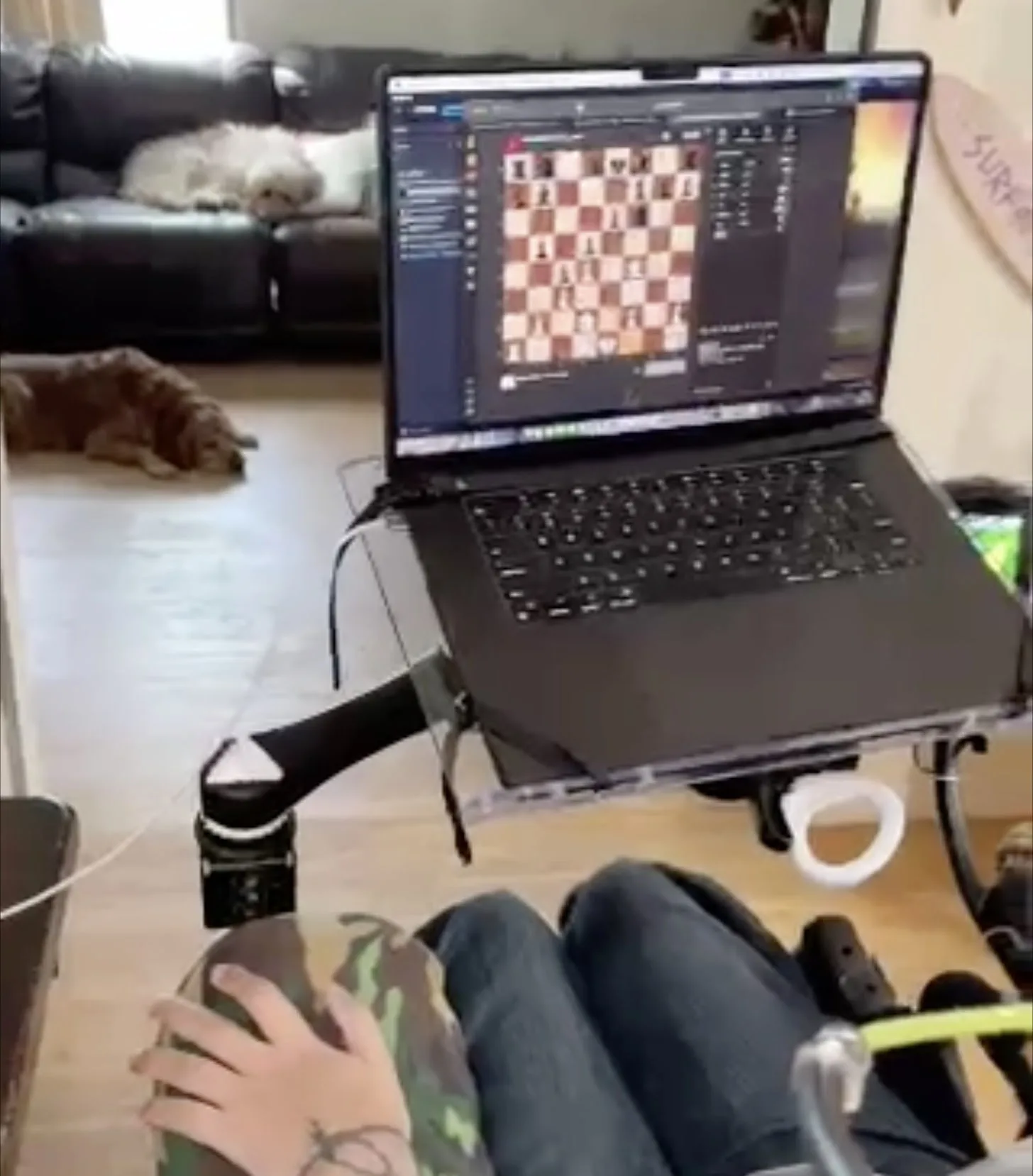Neuralink livestreamed on Twitter showing a man playing chess using his brain implants to control the laptop’s cursor.
In a groundbreaking display of Neuralink’s promised capabilities, a man played chess on his laptop, controlling his pieces on the software with the power of his mind. Neuralink uses brain implants to transmit signals to and from the mind. For example, every gesture we perform is controlled by our brain. If the neural connection between the mind and the appendages is broken (due to paralysis, for example), we cannot use those appendages anymore. A brain implant that can bridge this by sending signals to a receiver is a life-changing solution for people suffering from a variety of mobility issues.
This is Neuralink’s first human subject, a 29-year-old man who’s paralyzed from his shoulders down. Noland Arbaugh, in his livestream on Twitter, also said that he could play Civilization (incidentally one of my favorite game franchises) using the same interface. He can literally move the cursor on his screen with his mind, kind of like “using the Force.”
In the past, brain implants have had limited capabilities except for a few one-off cases of genius demonstrations. Neuralink’s video, though nothing outside of what the company promised, to begin with, is a clear testament to the progress consumer-facing companies have made.
You can watch the video here:
The time when you could insert a chip in your brain and move objects telepathically might not be too far. Just read the company’s terms and conditions really well before you get a hole drilled in your skull.
The aim of Neuralink is “Creating a general-purpose, high-bandwidth interface to the brain.“ So far, they seem to be having great success, though there have been concerns in the past regarding the company’s slow progress and legal compliance.
This is not AI news per se, but certain areas overlap between Neuralink (and Elon Musk’s other companies’) work, including its AI and ML systems.

